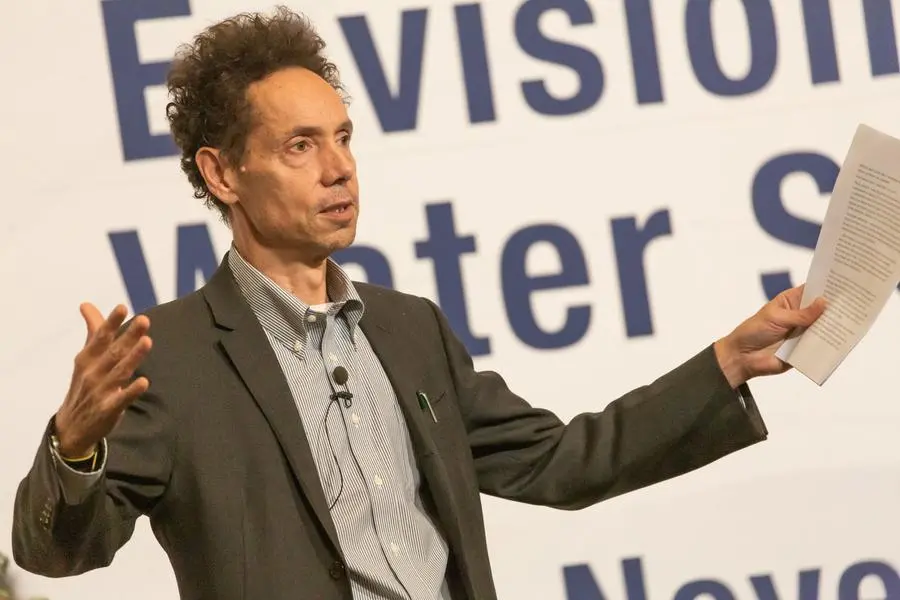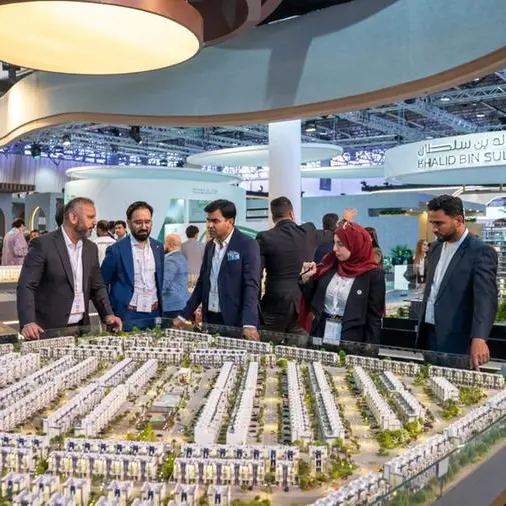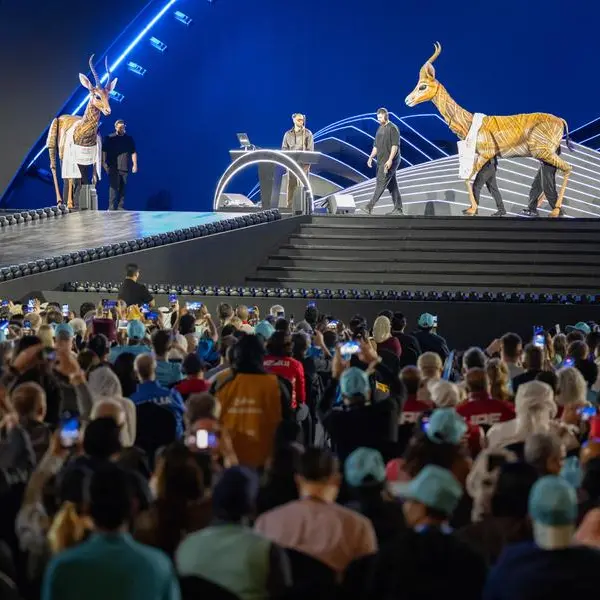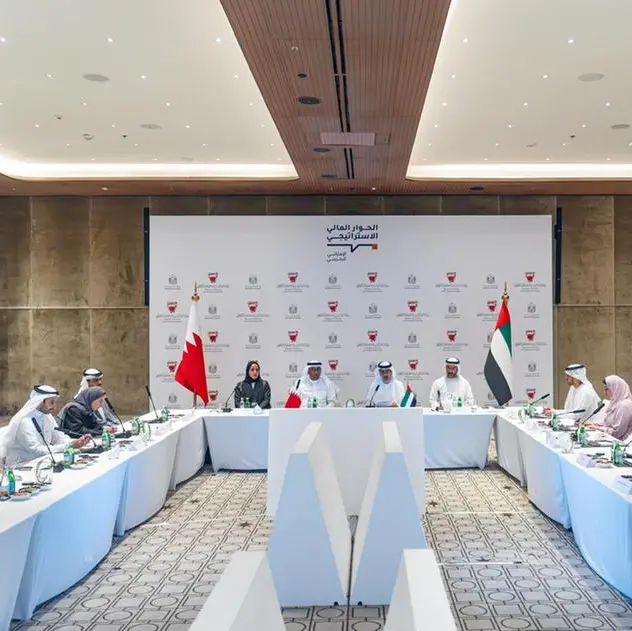PHOTO
With the security of our global water supply threatened in the face of climate change and increasing demand, finding solutions requires the type of risk-taking, urgent action, and networking required to cure diseases and start the digital revolution. This was one of the messages at the opening session of Georgetown University in Qatar (GU-Q)’s “Sustaining the Oasis: Envisioning the Future of Water Security” conference. It is the first-of-its-kind collaboration between GU-Q and the Earth Commons Institute at Georgetown University in Washington, DC.
In his opening keynote, Malcolm Gladwell, author of six New York Times bestsellers including The Tipping Point, Blink, and Outliers, named one of TIME’s 100 most influential people and Foreign Policy’s Top Global Thinkers, argued that the kind of social risk-taking and the sense of urgency that led to breakthroughs for treating childhood leukemia and the personal computer revolution can be a model for approaching climate change and water security.
“One of the mistakes we make is to treat every one of the problems we face as an ordinary problem. And to assume that it is not necessary to be urgent or disagreeable,” said Gladwell, describing the scientist who pioneered chemotherapy treatments despite the fact that his peers thought he was taking too many risks. “Scientists working on leukemia in the 1960s thought it was an ordinary problem and that it wasn’t necessary to be in a hurry or turn their backs on what their peers think,” he explained, going on to make the connection with environmental crises today.
“When you hear [the Amazon] is 20% deforested, you think we have a lot of time and it’s still in the early stages. But when you understand that 40% deforestation is where it collapses, you realize you don’t have a lot of time at all,” he said, adding, “I think a lot of climate denial is people struggling to adjust to this kind of non-intuitive timeline.”
Tipping points are profoundly counterintuitive, he argued. “There’s a tipping point in Amazon deforestation, which we are perilously close to, where the ecosystem in the Amazon will change very quickly from a rainforest to a kind of savannah with devastating consequences for the planet…It’s not a normal problem. It’s something that’s going to change overnight and we can’t approach it with that same mindset if we expect to have any kind of positive outcome.”
The dean of GU-Q, Dr. Safwan Masri, led an engaging conversation with Gladwell following the keynote, where he noted: “Water security can never be taken for granted. The World Health Organization reports that one in three people globally does not have access to safe drinking water,” pointing out the importance of conferences such as this one in calling attention to these issues and sharing positive developments. Gladwell agreed, adding “The persistence of skepticism about some of these issues suggests there’s something very wrong in the way we are framing them for the public and also our policymakers… We might need to spend more time thinking about the context in which we educate people.”
The “Sustaining the Oasis” two-day conference brings together academics, stakeholders, and expert speakers to discuss water security and sustainability, including water stewardship and its role in regional stability amid climate change while exploring a comprehensive future vision for water security including insight from educators on how to raise greater awareness about challenges and solutions. Among the other planned outcomes, the high-level findings from the conference will be shared with the COP28 Presidency to inform discussions and negotiations around water.
Regionally-relevant insights are a unique contribution of the conference. In her remarks, Dr. Raha Hakimdavar, conference co-organizer and Senior Advisor to the Dean of GUQ and the Dean of the Earth Commons Institute, said: “There has historically been a deep appreciation of the role of water in the Gulf region. We have been negotiating and compromising with nature for centuries. But today, the region is facing a lot of new challenges. The Gulf is particularly sensitive to the challenges posed by water security in the face of a changing planet. Six of the 10 most water-stressed countries are in the region. Facing this challenge requires an interdisciplinary and collaborative approach, one that connects cutting-edge science, technology, and innovation with policy, governance, and politics.”
Dean of Earth Commons, Dr. Peter Marra referred to the transformative power of education, and the need for transdisciplinary, interdisciplinary environmental degrees, experiential learning, and research-informed teaching and learning opportunities.
“That's what we're doing at the Earth Commons through courses, research programs, and degrees, but also informally in venues like this, where we’re bringing people together in a region to talk, to have conversations about issues as important as sustaining the oasis. So we're not just doing this across schools, across disciplines, we're doing it across campuses and this is powerful.”
The conference is open to the public as it continues through November 12. The program on the second day will include high-level panels discussing “COP28 and the Water Agenda,” the “Water-Food Nexus: The Geopolitics of Food Security in the Gulf,” and “The Role of Gulf Countries in Defining a Water Secure World,” as well as round table discussions on key themes.
Live Arabic translation is available for the panels. For the full program and registration, please visit the conference website at https://hiwaraat.qatar.georgetown.edu/oasis/.
About Hiwaraat
The Hiwaraat Conference Series at Georgetown University in Qatar (GU-Q) brings together scholars, experts, and the public for an exploration of shared global challenges in order to create a better future through dialogue and discussion. Each conference in the series offers an inclusive space that encourages community engagement, knowledge creation, and the search for innovative solutions to present and future challenges.
https://hiwaraat.qatar.georgetown.edu/
About Georgetown University in Qatar
Established in 1789 in Washington, DC, Georgetown University is one of the world’s leading academic and research institutions. Georgetown University in Qatar (GU-Q), founded in 2005 in partnership with Qatar Foundation, seeks to build upon the world-class reputation of the university through education, research, and service. Inspired by the university’s mission of promoting intellectual, ethical, and spiritual understanding, GU-Q aims to advance knowledge and provide students and the community with a holistic educational experience that produces global citizens committed to the service of humanity.
About The Earth Commons—Georgetown University’s Institute for Environment & Sustainability
The Earth Commons is an institute at Georgetown University for environmental and sustainability innovation, research and education to accelerate action on the most pressing issues of our earth. Assembling a team of interdisciplinary experts, researchers, leaders and students, the Earth Commons is shaping the future of our planet by building, supporting, and infusing environmental and sustainability research, education and action throughout the Georgetown University community and beyond.




















